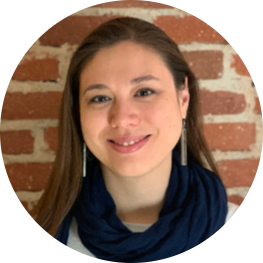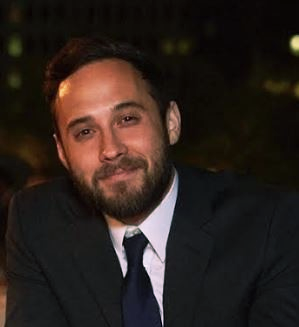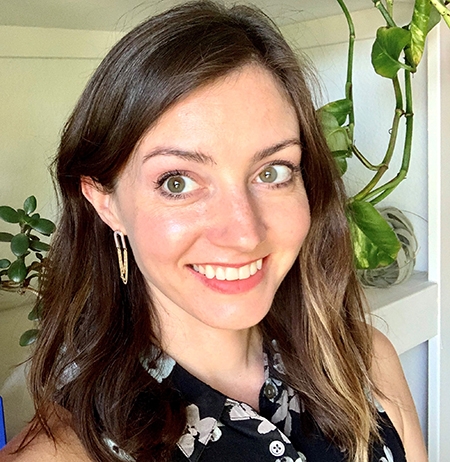Careers After the Cotsen: Alternatives to Academia

After many long years of study and research, you are ready to enter the world with a PhD from UCLA. The skills you have learned and the knowledge you have gained would obviously be appropriate for a career in academia. But if you are considering an alternative route, how would you apply that experience to a career in the private sector? And how would you go about getting that job?
Several themes became apparent during interviews with alumni from the archaeology program of the Cotsen Institute who have found success in the private sector, even though they had started their graduate programs with the intention of eventually going into academia. Although none gave up their love of archaeology, for many, their priorities had changed between when they entered the program and when they approached graduation. By that time, they had seen colleagues face the difficulties of establishing a career in academia: finding a job while competing with others with more experience; being willing to relocate (or geographically agnostic, as one graduate said); and not earning much after years of struggling during graduate school.
But what does a PhD in archaeology qualify you for, if not academia? It may come as a surprise, but there is great value in your years of experience in research, field study and analysis, technology use, and on-site management and problem-solving. In other words, you have a skill set that can be applied to many private sector jobs.
Career Counseling and Networking
Career counseling events on campus helped demonstrate this transfer of skills to Rachel Moy, who obtained her PhD in Archaeology in 2019. Through these events, which she started attending more than a year before graduation, she was able to create a network with other graduates who had gone on to private sector careers. “The biggest thing is to expand your network,” according to Moy, who is now a Project Manager for GMV Synchromatics, a public transit contractor in Los Angeles.
 For Moy, one of the attractions of a job in the private sector is the ability to work with other people on projects, as opposed to the often solitary work of doing research and compiling data in academia. She also emphasized the importance of learning how to sell your experience and how to present yourself differently. She used LinkedIn and Indeed.com as resources, but advises everyone to be prepared for rejections. “Just be aware that you never know when your background is going to strike a chord during an interview,” she advised. At her current job, they were impressed with the various software and time management tools she had mastered. They also asked about how she would deal with clients and tough situations. “I related that to dealing with field school students or local community representatives,” she explained.
For Moy, one of the attractions of a job in the private sector is the ability to work with other people on projects, as opposed to the often solitary work of doing research and compiling data in academia. She also emphasized the importance of learning how to sell your experience and how to present yourself differently. She used LinkedIn and Indeed.com as resources, but advises everyone to be prepared for rejections. “Just be aware that you never know when your background is going to strike a chord during an interview,” she advised. At her current job, they were impressed with the various software and time management tools she had mastered. They also asked about how she would deal with clients and tough situations. “I related that to dealing with field school students or local community representatives,” she explained.
Start With Informational Interviews
When MaryAnn Kontonicolas, who graduated with a PhD in Archaeology in 2018, began her job search, she also started with informational conversations with other graduates who had found alternative jobs. She signed up for a free trial of a premium LinkedIn account, which allowed her to use more sophisticated search criteria, such as specific industries or the term “PhD.” She recommends highlighting keywords under the skills section, like being able to use Python or R, or research, writing, or public speaking. She was able to find many people who were willing to speak to her for 15 minutes and answer her questions. In her current position as Engagement Manager for ECA in Santa Monica, she manages a team of recruiters and oversees several projects.
 ECA is an evidence-based, data-driven executive search firm looking specifically for applicants with PhDs in the social sciences. Kontonicolas thinks their interest in PhDs reflects their goal of finding people “with the rigorous training we get in the scientific method, plus the intellectual curiosity and creative problem-solving skills that transfer well from academia.” She added that with a social science background, “we have an inherent interest in working with people and understanding their decision-making process. We have actually hired a ton of other graduates. I have a unique lens in terms of what has gone well and what are common pitfalls, like verbosity or lack of interest in the role. You definitely have to put yourself out of your comfort zone a lot,” she added. Kontonicolas, along with Moy, actually found their jobs from referrals by colleagues who had been approached by companies, but had passed along the information to them.
ECA is an evidence-based, data-driven executive search firm looking specifically for applicants with PhDs in the social sciences. Kontonicolas thinks their interest in PhDs reflects their goal of finding people “with the rigorous training we get in the scientific method, plus the intellectual curiosity and creative problem-solving skills that transfer well from academia.” She added that with a social science background, “we have an inherent interest in working with people and understanding their decision-making process. We have actually hired a ton of other graduates. I have a unique lens in terms of what has gone well and what are common pitfalls, like verbosity or lack of interest in the role. You definitely have to put yourself out of your comfort zone a lot,” she added. Kontonicolas, along with Moy, actually found their jobs from referrals by colleagues who had been approached by companies, but had passed along the information to them.
Learn to Manage While Still in School
“The most important skill that anyone can get out of a PhD in archaeology is to put yourself in a position to manage people, manage projects, and manage budgets,” advises Ben Nigra who graduated in 2017. Nigra credits the Cotsen Institute with giving him all the resources he could have wanted to pursue his original passion in archaeology. However, “you may know what your passions are at age 23, but you do not really know what it takes to live the kind of life that you want to live,” after you have received your degree. “I realized that landing a job at a great university where I could battle for tenure in a place where I wanted to live with my family” was going to be extremely difficult. After that determination, his first efforts were to get something interesting that paid the bills in order to put that experience on his CV, being able to state that he had worked in a non-academic environment for a couple of years. He described these first two years as a grand experiment to see what he really did have to bring to the table.
 “You have to back off the microscope for a second after spending so many years focusing on something incredibly specific” for your dissertation, he learned. He urges everyone who is fortunate enough “to jump on any opportunity to direct an excavation or big survey where you have more than five people under your charge, where you have a sizable budget that you are accountable for, and where you have to make reports and do some negotiations or work with local authorities.” He considers that experience invaluable. His plan resulted in his eventually becoming Project Manager, Strategic Management and Planning, at Helixmith USA, a Korean biotech company, with his office in San Diego. He also wanted to advise graduates that in every interview he ever did, the first question they asked was about archaeology. “It is a great talking point because it sounds so cool,” he explained. “Take it to the bank. They are going to want to talk to you about it, and it automatically puts you in people’s good graces.”
“You have to back off the microscope for a second after spending so many years focusing on something incredibly specific” for your dissertation, he learned. He urges everyone who is fortunate enough “to jump on any opportunity to direct an excavation or big survey where you have more than five people under your charge, where you have a sizable budget that you are accountable for, and where you have to make reports and do some negotiations or work with local authorities.” He considers that experience invaluable. His plan resulted in his eventually becoming Project Manager, Strategic Management and Planning, at Helixmith USA, a Korean biotech company, with his office in San Diego. He also wanted to advise graduates that in every interview he ever did, the first question they asked was about archaeology. “It is a great talking point because it sounds so cool,” he explained. “Take it to the bank. They are going to want to talk to you about it, and it automatically puts you in people’s good graces.”
Use Your Research Background
 While working on her dissertation, Chelsey Fleming, PhD Archaeology 2016, asked herself if there was a way she could do research, but take it a step beyond the resources that were then available to her in academia. She ended up in a partnership with a technology startup company to help her do some large-scale quantitative data synthesis. She always intended to apply her work in classical archaeology more broadly than strictly field archaeology and had originally wanted to work in an art museum. After graduation, she discussed her dissertation research with anyone who would listen and eventually figured out that user-research was an area where her social science background provided a good foundation and a skill set at a base level. “I felt I needed some hands-on experience and ended up getting a couple of consulting jobs to get that experience,” she explained. Taking the experience from the consulting jobs, she worked through an agency that was used by big tech companies who were looking for people to fill contract roles. “I was able to get a one-year contract with Google, and at the end was able to convince them to hire me full time.” She started at Google in 2017 and is currently a User Experience Researcher. “I do research on people’s preferences: their tastes in what they like visually and how they engage with an experience, a process, and even a physical space. And it was my dissertation that got me interested in the big question.”
While working on her dissertation, Chelsey Fleming, PhD Archaeology 2016, asked herself if there was a way she could do research, but take it a step beyond the resources that were then available to her in academia. She ended up in a partnership with a technology startup company to help her do some large-scale quantitative data synthesis. She always intended to apply her work in classical archaeology more broadly than strictly field archaeology and had originally wanted to work in an art museum. After graduation, she discussed her dissertation research with anyone who would listen and eventually figured out that user-research was an area where her social science background provided a good foundation and a skill set at a base level. “I felt I needed some hands-on experience and ended up getting a couple of consulting jobs to get that experience,” she explained. Taking the experience from the consulting jobs, she worked through an agency that was used by big tech companies who were looking for people to fill contract roles. “I was able to get a one-year contract with Google, and at the end was able to convince them to hire me full time.” She started at Google in 2017 and is currently a User Experience Researcher. “I do research on people’s preferences: their tastes in what they like visually and how they engage with an experience, a process, and even a physical space. And it was my dissertation that got me interested in the big question.”
Finding a Job in a Recession
When Abigail Levine, PhD Anthropology 2012, started her job search, the economy was still recovering from the 2008-2009 recession. Universities across the board had clamped down on hiring, and few faculty were retiring. There were less jobs available, and they were becoming increasingly specific, she explained. “My approach to my degree had been general; to hone my skills as a scholar. I was originally interested in research goals that dealt with major questions in the field. But after my PhD, I had to come to terms with the reality that had shifted from when I entered the program.” While doing postdoctoral work as a Research and Development Analyst at the Cotsen Institute, she started strategizing about how to take her skills and make them marketable. She found her first job on Monster.com at an oncology research nonprofit, where she was awarding grants and stewarding donations.
 She had received many job application responses saying that she did not have sufficient practical experience, but during the application process for what became her initial job, she was asked to write a progress report for a grant they had made. Scientists had written a very technical report that needed to be re-written for a lay audience. After looking up the basic science on the internet, she “then imagined that I was trying to teach this to undergraduate students!” That approach to the project pushed her over the top into that first job. She has since moved on from what she saw as “the limited opportunities in non-profits” in terms of personal growth and is currently Principal, Solutions and Delivery, at Evidation Health, working from her home in Los Angeles.
She had received many job application responses saying that she did not have sufficient practical experience, but during the application process for what became her initial job, she was asked to write a progress report for a grant they had made. Scientists had written a very technical report that needed to be re-written for a lay audience. After looking up the basic science on the internet, she “then imagined that I was trying to teach this to undergraduate students!” That approach to the project pushed her over the top into that first job. She has since moved on from what she saw as “the limited opportunities in non-profits” in terms of personal growth and is currently Principal, Solutions and Delivery, at Evidation Health, working from her home in Los Angeles.
For students who think “this is the only thing I can do,” she urges them to break out of that mindset. “Having an academic research background is such an asset in certain fields; it brings a whole other lens,” she said. But it is also necessary to be solutions-oriented and understand how to right-size your solution to your problem, she added. Being in academia can be good preparation for a start-up environment, she pointed out, “because you have to manage ambiguity, make decisions based on incomplete information, and be able to weave a narrative from information that may be subject to interpretation.”
A selection of the careers of alumni from the Cotsen Institute appears yearly in “Backdirt,” the Annual Review of the Cotsen Institute. A special entry in the 2020 issue will be dedicated to career opportunities outside academia.
To support research and teaching in archaeology and conservation at the Cotsen Institute, or for more information, please contact Michelle Jacobson at mjacobson@ioa.ucla.edu.
Published on June 11, 2020.


